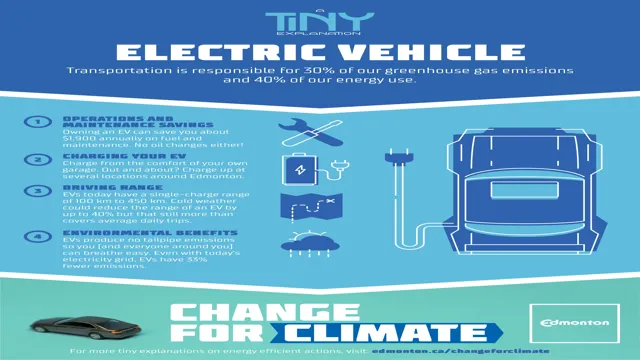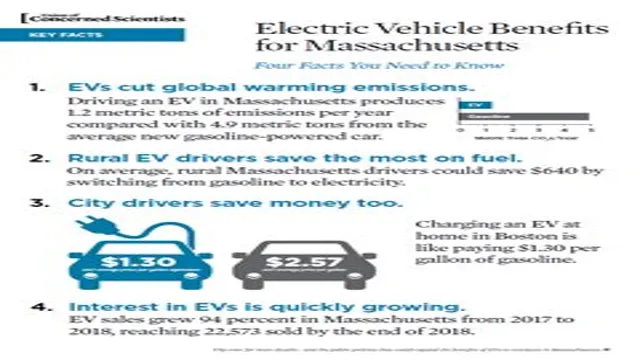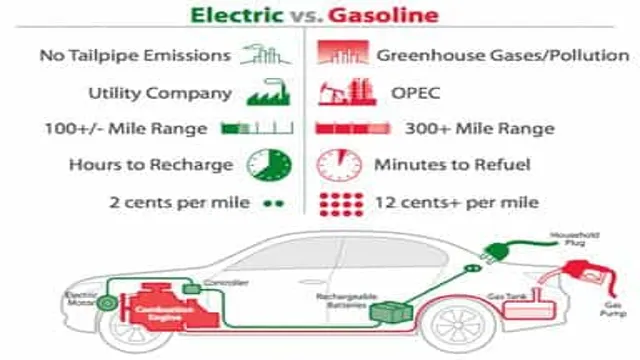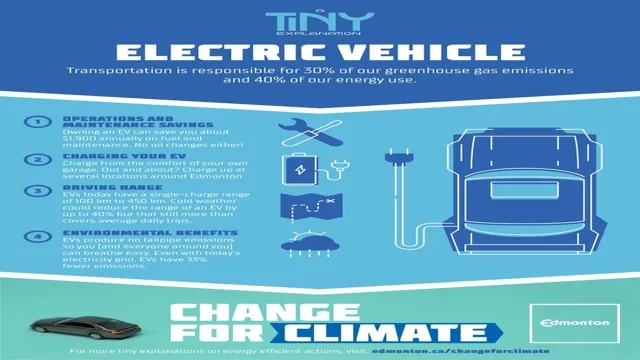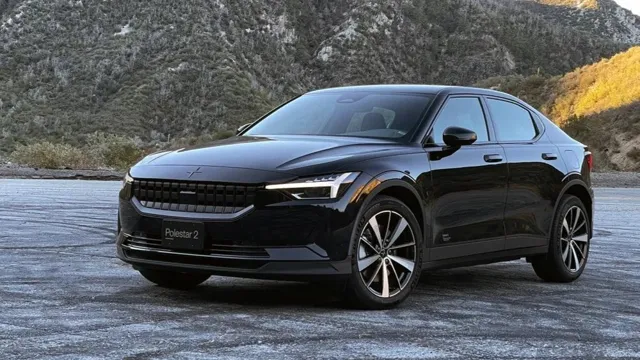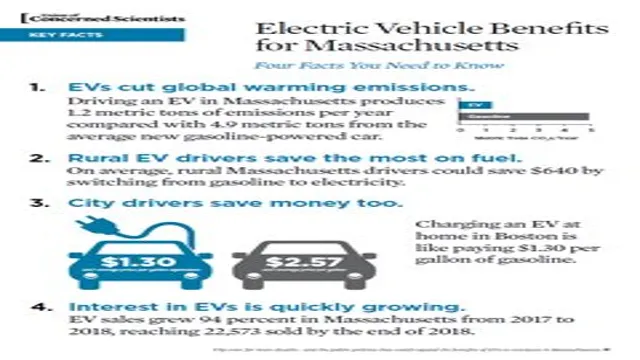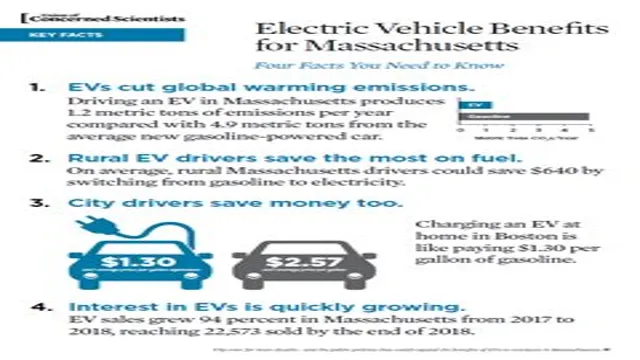Eco-Friendly Wheels: Unraveling the Environmental Benefits of Electric Cars
If you’re someone who drives a gas-powered car, have you ever stopped to think about the environmental impact that vehicle has? While it may be convenient for getting around, cars that run on gasoline have a significant impact on the planet. As the world becomes more aware of the need to reduce our carbon footprint, it’s important to understand just how harmful driving a gas-powered car can be. In this blog, we’ll explore the ways in which cars that run on gasoline impact the environment and what we can do to lessen that impact.
So, buckle up and get ready to learn about the downside of gas-powered cars.
Greenhouse Gas Emissions
Electric cars are quickly becoming a popular choice for environmentally conscious drivers due to their significant reduction in greenhouse gas emissions. Compared to gas-powered cars, which release carbon dioxide, methane, and other harmful gases into the atmosphere, electric vehicles emit practically zero emissions while driving. This means that driving an electric car can help to combat air pollution and reduce the negative impact that transportation has on our environment.
In fact, studies have shown that electric cars have the potential to reduce greenhouse gas emissions by up to 64% compared to their gas-powered counterparts. So, by switching to an electric car, not only are you saving money on gas and maintenance costs, but you’re also contributing to a cleaner, healthier planet for future generations.
The Dangers of CO2 Emissions
Greenhouse gas emissions are a serious problem in our world today. Carbon dioxide (CO2) is the most common type of greenhouse gas, and it is released into the atmosphere through various human activities, such as burning fossil fuels. The danger of CO2 emissions lies in their ability to trap heat in the Earth’s atmosphere, leading to a rise in global temperatures and a host of negative consequences.
For example, increased temperatures can cause heatwaves, droughts, and wildfires, as well as melting glaciers and rising sea levels. These effects have serious implications for our planet and its inhabitants, including increased health risks, food and water shortages, and economic disruption. In order to combat the dangers of CO2 emissions, we must take action to reduce our carbon footprint and transition to cleaner, renewable sources of energy.
By doing so, we can help ensure a safer, healthier future for ourselves and future generations.

How Electric Cars Combat Emissions
Greenhouse gas emissions are a huge threat to our planet, and we all need to do our part to combat this issue. One way we can do this is by switching to electric cars. Traditional gasoline-powered cars emit harmful pollutants, which contribute to poor air quality and climate change.
However, electric cars produce zero emissions, which means they have a much smaller impact on our environment. By driving an electric vehicle, you can significantly reduce your carbon footprint and help protect the planet. Not only that, but electric cars are also more cost-effective and can save you money in the long run.
So, it’s a win-win situation for both you and the planet. If you’re worried about running out of battery, don’t be! As technology continues to advance, electric car batteries are becoming more efficient and their range is steadily increasing. So, next time you’re in the market for a new car, consider making the switch to electric and do your part in combatting greenhouse gas emissions.
Reduced Pollution
One of the most significant environmental benefits of electric cars is the reduced pollution they produce. Traditional gasoline-powered vehicles emit harmful pollutants that contribute to air pollution and climate change, such as carbon dioxide, nitrogen oxides, and particulate matter. In contrast, electric cars produce zero emissions from their tailpipes, resulting in cleaner air and a healthier environment.
By choosing to drive an electric car, individuals can reduce their carbon footprint and help mitigate the impacts of climate change. Additionally, because electric cars can be powered by renewable energy sources such as wind or solar power, they offer the potential for even further reductions in pollution and greenhouse gas emissions. By embracing electric cars as a truly eco-friendly alternative, we can help pave the way towards a more sustainable and livable planet for all.
Reducing Localized Air Pollution
Reduced Pollution Over the past few decades, air pollution has become a major health concern worldwide. Air pollution has been linked to respiratory diseases, heart diseases, stroke, and even cancer. Efforts to reduce air pollution are therefore critical to protecting public health and the environment.
One effective way to reduce localized air pollution is to implement measures that reduce emissions from vehicles and industrial sources. For instance, communities can adopt policies that encourage the use of public transportation, biking or walking, instead of driving. Additionally, local authorities can enforce regulations that limit the emission of harmful pollutants from factories and power plants.
The use of modern technology in industries can also help reduce the emissions of pollutants. Reducing localized air pollution is a major undertaking that requires the concerted efforts of governments, industries, and individuals, but the payoff is a healthier and safer environment for all.
Fewer Oil Spills
Reduced Pollution Oil spills can have a devastating impact on the environment, marine life, and human health. These spills can occur from natural disasters, human error, or equipment failure. However, by using advanced technology and best practices, the number of oil spills can be significantly reduced, resulting in fewer negative effects on the environment and living creatures.
Efforts to improve containment strategies, spill response times, and cleanup methods have shown promising results. By adopting new innovations like remote sensing technology and artificial intelligence, we can now detect spills more quickly and accurately. This allows us to respond more efficiently and effectively, reducing the overall impact of the spill.
As we continue to strive for improved methods, we can look forward to a future with fewer oil spills and reduced pollution.
Less Noise Pollution
Reduced Pollution One of the biggest advantages of reducing noise pollution in our environment is the significant reduction in overall pollution levels. Noise pollution has a profound impact on our surroundings, disrupting not only human activities but also the natural balance of ecosystems. By implementing noise-control measures, such as reducing traffic noise, sound barriers, and enforcing regulations on loud noise in public areas, we can significantly reduce overall pollution levels.
This is because noise pollution not only affects our ears but also disturbs sleep and has a knock-on effect on health. Moreover, the reduction of noise pollution can help animals in the wild, as they rely on natural sound cues for mating, feeding, and communication purposes. Overall, taking steps to reduce noise pollution is crucial in achieving a healthier environment for everyone, both human and non-human.
Sustainable Materials Used in Electric Cars
When it comes to the environmental benefits of electric cars, one of the main factors to consider is the use of sustainable materials. Traditional gas-powered cars are riddled with toxic materials, such as lead, mercury, and cadmium, which can harm not only the environment but also the human beings who come in contact with them. On the other hand, electric cars use materials like lithium-ion batteries, which are more environmentally friendly and less prone to leakage than their gas equivalents.
Additionally, many electric car manufacturers are opting for recyclable and renewable materials, such as aluminum and bamboo-based interiors, which reduce waste and promote sustainability. By using sustainable materials in electric car production, we can greatly reduce the negative impact of transportation on the environment and create a more sustainable future for generations to come.
Recycling Materials
Electric cars have gained popularity in recent years due to their eco-friendliness and sustainability. One of the essential aspects of electric cars is the materials that are used to manufacture these vehicles. Most electric cars are made from sustainable materials like recycled plastic, aluminum, and steel.
These materials are not only eco-friendly but also have good durability, making them ideal for use in electric cars. For instance, recycled aluminum, steel, and plastic are used in the production of the battery, chassis, and body of an electric car. Recycled materials are cost-effective and do not require new resources, making the production of electric cars more sustainable.
Additionally, using these recycled materials reduces the amount of waste that accumulates in landfills, which is beneficial to the environment. Overall, the use of sustainable materials in electric cars contributes significantly to reducing the carbon footprint and preserving the environment.
Reducing Dependence on Fossil Fuels
Electric cars offer a sustainable solution for reducing our dependence on fossil fuels. One of the key features that make electric cars so environmentally friendly is the use of sustainable materials. The production of electric cars involves the use of several sustainable materials, including recycled plastics, natural fibers, and bioplastics.
These materials have a lower carbon footprint and require less energy to produce, making them an eco-friendly alternative to the traditional materials used in the automotive industry. For instance, car manufacturers are now using vegetable-based fibers, such as flax, hemp, and cotton, instead of synthetic fibers like nylon and polyester to reduce the environmental impact of the car. By utilizing such materials, electric cars are setting an example of sustainable transportation for the future, and they are helping us move towards a cleaner and greener world.
Electric cars have come a long way in terms of their development and continue to evolve with every passing year.
Conclusion
In conclusion, electric cars provide a myriad of environmental benefits – from lower carbon emissions to reduced air and noise pollution. Not only do these vehicles showcase the power of eco-friendliness, but they also prove that driving can be both sustainable and stylish. So, next time you hit the road in your electric car, remember that you’re not just benefiting yourself, but also the planet and all those who inhabit it.
Let’s continue to drive towards a brighter, cleaner future – one electric car at a time.”
FAQs
What are the environmental benefits of electric cars?
Electric cars produce zero emissions, which reduces air pollution and greenhouse gas emissions. They also require less oil for fuel, reducing the dependency on fossil fuels.
Are electric cars more energy efficient than gasoline cars?
Yes, electric cars are more energy efficient than gasoline cars because they convert a higher percentage of the energy stored in their batteries into power to propel the car.
How do electric cars compare in terms of lifetime emissions?
Electric cars have lower lifetime emissions compared to traditional gas-powered cars, even when factoring in emissions generated during vehicle manufacturing and battery production.
Are there any drawbacks to owning an electric car?
Some potential drawbacks of owning an electric car include limited driving range per charge, lack of charging infrastructure in some areas, and higher initial cost compared to gas-powered cars. However, many of these concerns are being addressed by advancements in technology and government incentives.
